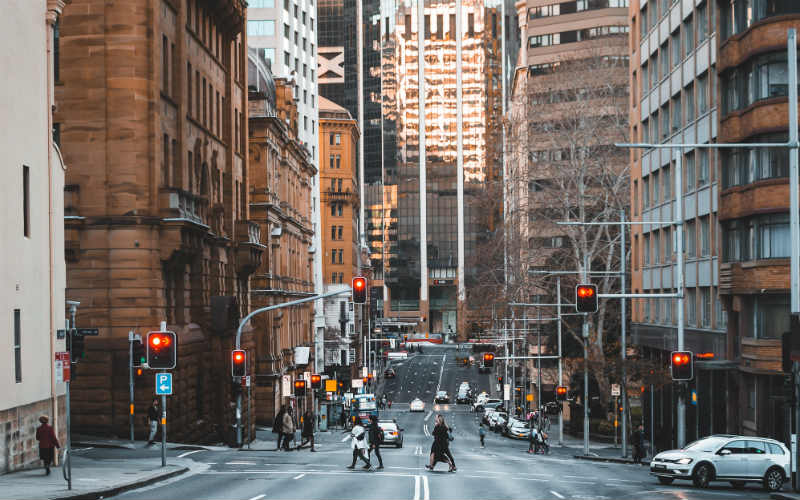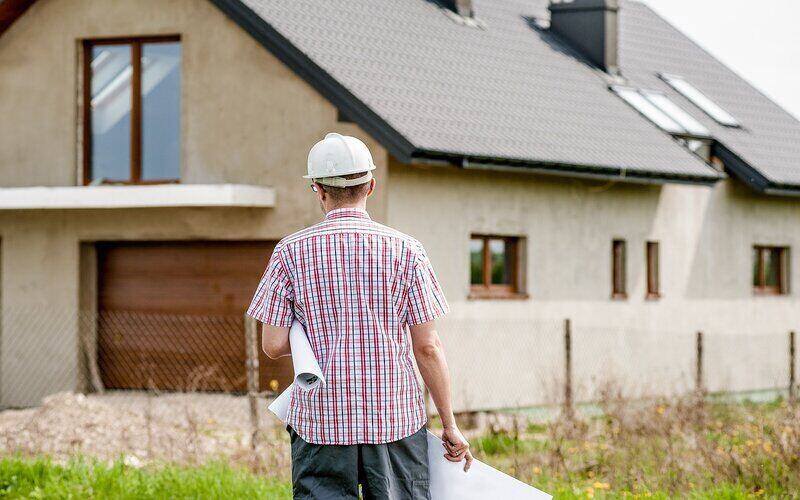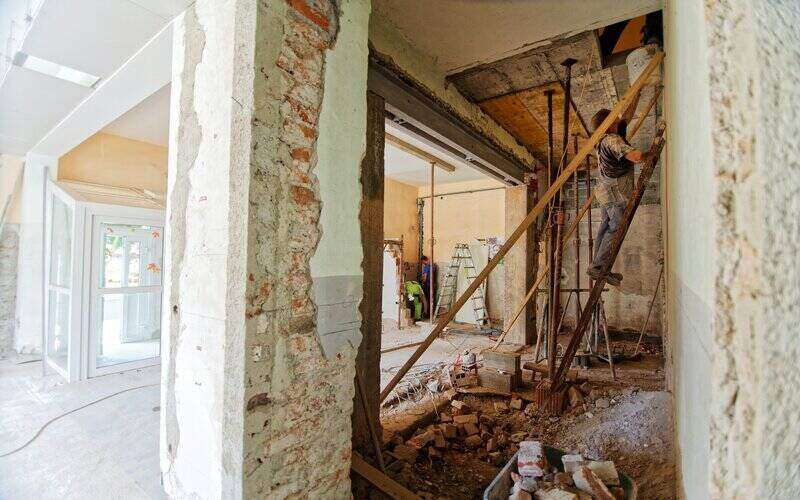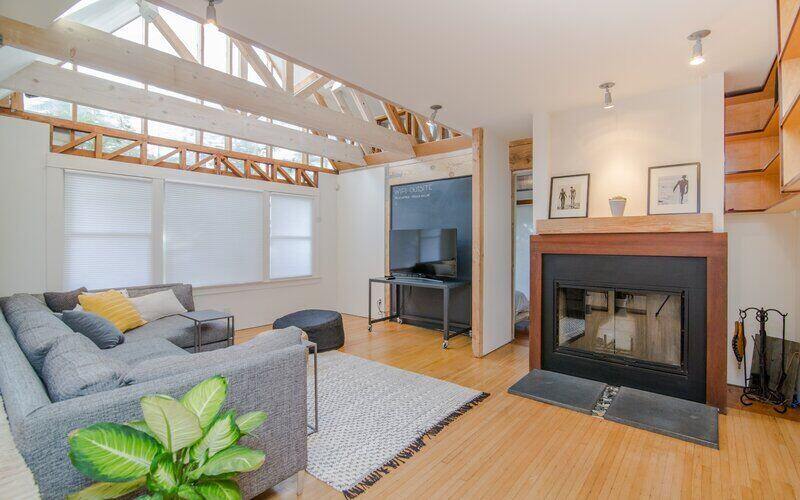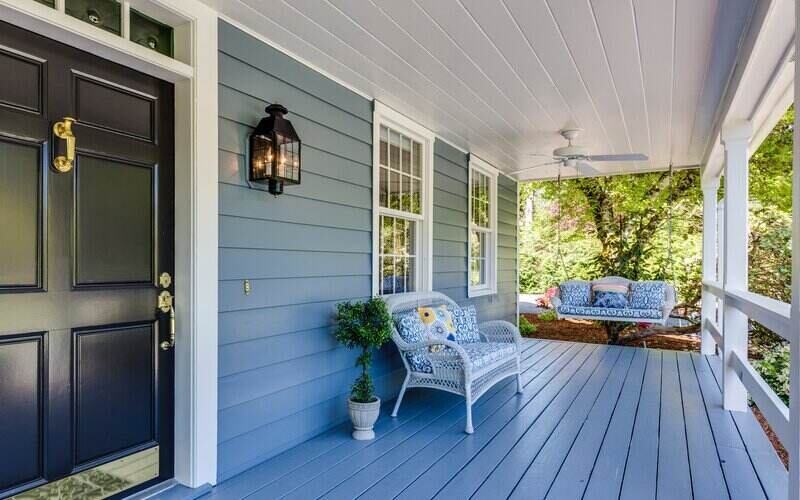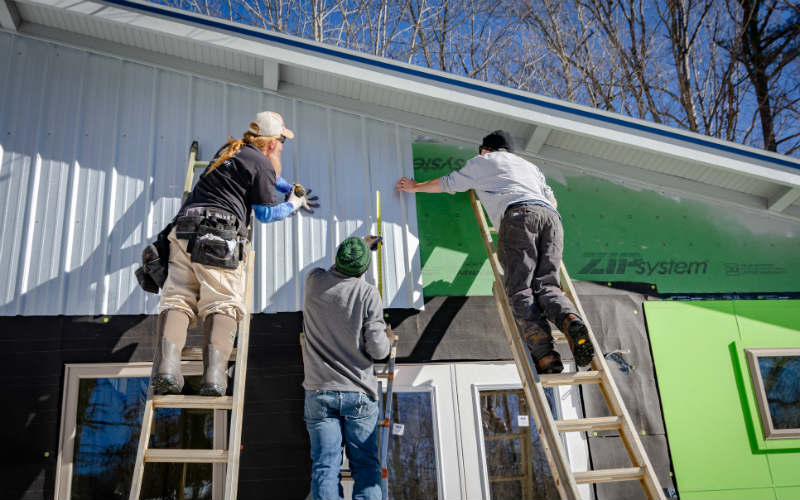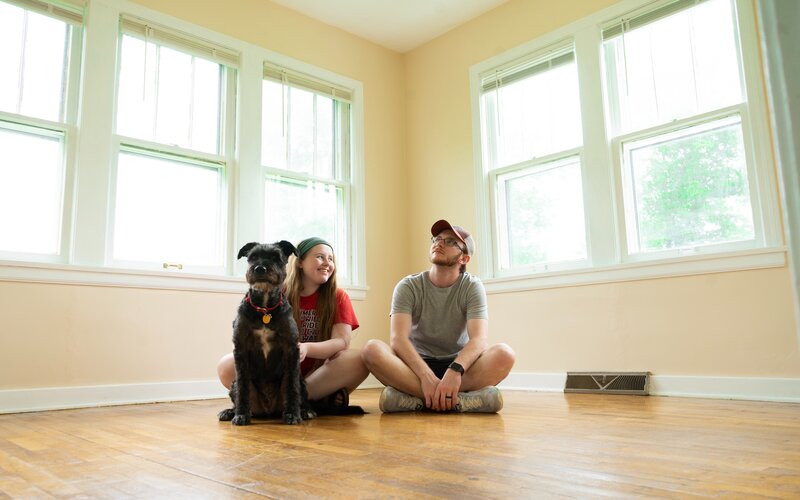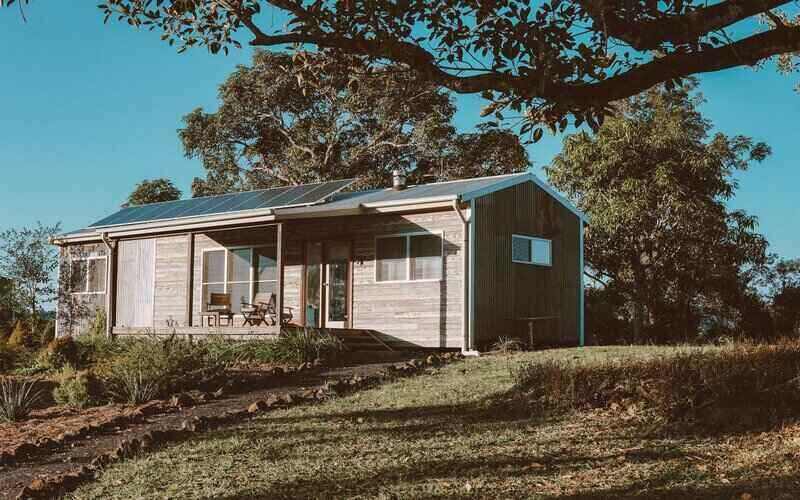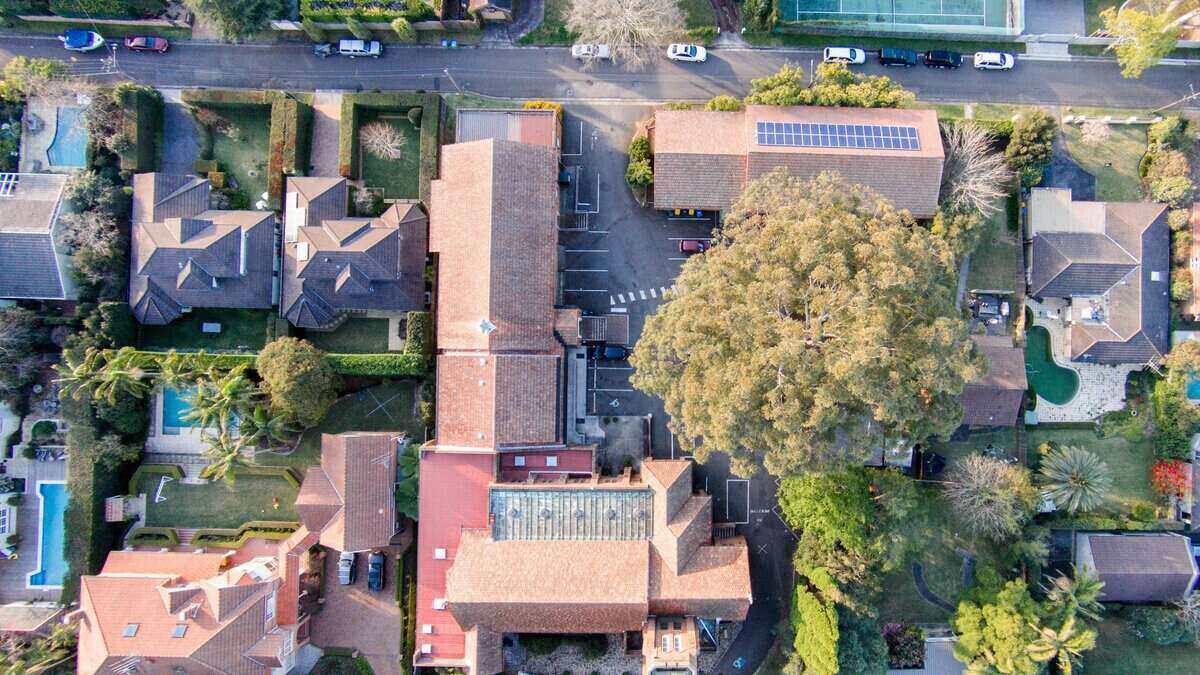With property prices and competition falling away, it’s a ripe combination for buyers but a potential disaster if you were getting ready to sell prior to the pandemic.
We’ve spoken to some experts to get their take on what to do if you’re thinking about buying or selling during COVID-19.
On this page:
Should I buy a house during COVID-19?
As the country grapples with the economic fallout from the coronavirus pandemic, it’s understandable that some would-be homebuyers are sitting on their hands.
But with competition drying up and house prices predicted to drop anywhere between 10% to 30% depending on who you ask, founder and CEO Metropole Property Strategist Michael Yardney says now is a great time to buy - if you’re in a financially secure position.
“One of the major lessons I have learned from previous downturns is the importance of taking a long-term perspective which always outsmarts short-term reactive thinking,” Mr Yardney told Savings.com.au.
“Of course, we all know the old saying, be fearful when others are greedy and be greedy when others are fearful.
“It’s normal human nature to find it difficult to buy your new home or invest when everyone else is running around thinking the world is coming to an end.
“However, now that I have invested through eight property cycles, I have found that it is exactly these conditions that present the best opportunity. That means now is the time to get prepared to take advantage of the opportunities that the market will offer.”
While the current conditions may present a lucrative opportunity for buyers, Director of Investors Choice Mortgages, Jane Slack-Smith said buyers shouldn’t prey on people in dire financial circumstances.
“There is opportunity but be mindful those who are selling may not have a choice. So take the opportunity but don’t be overly opportunistic,” she told Savings.com.au.
“There will be a mix of buyer types - those after blood in the water and those who are experienced buyers who know that the best time to buy is when you can afford it rather than timing the market.”
Mr Yardney noted that history shows us that after most major economic disruptions like the GFC, house prices typically rise.
He said that those who did buy during the pandemic could do so with the confidence they would be buying towards the lower end of the market.
“For those who have a secure job and their finances organised, this is a great time to buy a home or investment property at a price that you were unlikely to be able to get a couple of weeks ago when the property markets in big capital cities were booming and there were more buyers around than sellers,” Mr Yardney said.
“There is no doubt there will be opportunities in the market for those who are willing to go against the crowd and when they look back in a year’s time and definitely in five or 10 years’ time, they will remember the unprecedented events of 2020 as a great buying opportunity for property.”
While buyers may be keen to take advantage of lower prices, Mr Yardney urged buyers not to make long-term decisions based on the news cycle.
How to buy well in this market
Buyers may have increased bargaining power and more options, but they should be wary not to buy junk stock just because it’s cheap.
Property Investment Professionals of Australia (PIPA) chairman Peter Koulizos said buyers should make sure they’re buying for the right reasons.
“Even if COVID-19 presents us with a buyers’ market, this is no excuse for being slack on research or not doing any due diligence,” he said.
“People might be tempted to buy property because it is a bargain but something selling cheaply in a poor location with little or no capital growth drivers is not a bargain.”
Would-be buyers should remember that if a property seems too cheap to be true, there’s probably a good reason, Ms Slack-Smith added.
“I spoke to one of my mentoring clients this week, she had found a cheap property on the Gold Coast. We had a plan to buy the best possible property she could afford in an area set for growth. This cheapie bargain threw a spanner in the works,” she said.
“But the facts don’t lie. Lenders have listed units in inner-city Sydney, Melbourne and the Gold Coast as high risk and most likely to lose a lot of value. Even a house on the Gold Coast will have fallout from the economic effect of tourism and retail drying up.
“Buyers can buy well, but don’t go looking for a cheapie. Make sure it still fits the long-term brief.”
Instead, buyers should remember that property fundamentals, such as demographics, supply and demand, affordability and local economic trends are what drives the property market in the long term.
Off-market opportunities were also likely to boom, Mr Yardney added.
“With fewer properties on the open market, and more properties being sold off-market, smart buyers are using the services of buyers agents to level the playing field and get access to these properties,” he said.
Negotiation can play a big part in securing a good buy, especially during this crisis, Mr Koulizos added.
“Sellers are looking for certainty so if you can make an offer with as few conditions as possible and a short settlement period, you may find that you bag yourself a bargain.”
How far could house prices fall?
It depends on who you talk to, but most economists are forecasting an average price drop of between 10% to 20% nationally. Some economists are even predicting a worst-case scenario of a 30% decline in property values.
Sydney and Melbourne are expected to bear the brunt of the downturn as they’re considered the most inflated housing markets in the country and rely heavily on overseas migration.
The first signs of a slowdown are already evident, with Melbourne and Sydney house prices losing steam in April:
Change in dwelling values to April 30, 2020
|
|
Month |
Annual |
Median Value |
|
Sydney |
-0.4% |
14.3% |
$889,992 |
|
Melbourne |
-0.3% |
12.4% |
$695,761 |
|
Brisbane |
-0.3% |
3.8% |
$507,982 |
|
Adelaide |
-0.4% |
1.5% |
$439,397 |
|
Perth |
-0.2% |
2.5% |
$448,355 |
|
Hobart |
-0.1% |
5.0% |
$484,645 |
|
Darwin |
1.7% |
2.7% |
$402,225 |
|
Canberra |
0.0% |
4.3% |
$626,997 |
|
Combined capitals |
-0.2% |
9.7% |
$647,414 |
|
Combined regional |
-0.5% |
3.2% |
$396,070 |
|
National |
-0.3% |
8.3% |
$557,739 |
Source: CoreLogic
According to Mr Yardney, short-term falls in value will vary between property types:
-
‘Investment grade’ and ‘A-grade’ (above average) properties could lose up to 5% in value
-
‘B-grade’ (average) homes could lose up to 10% in value
-
‘C-grade’ (less than perfect) homes will be hardest hit “as there will be a flight to quality”
“But this will be on very low levels of transactions and the pace of recovery from that point will depend on the state of the wider economy,” Mr Yardney added.
He says the worst affected residential markets will be apartments in high-rise towers, off-the-plan apartments, apartments close to universities, outer suburban new housing estates and house and land packages, and properties in blue-collar areas.
“On the positive side, households and property investors whose incomes remain stable and secure will be able to take advantage of historically low interest rates,” Mr Yardney said.
“This should support a return to stronger levels of price growth in the medium term.”
Regardless of how far house prices fall, Managing Director of SQM Research Louis Christopher said the rental markets in the nation's biggest capitals will take a huge blow.
"We're going to see a significant rise in rental vacancies and a fall in rents," he said.
SQM Research’s data has already shown a massive spike in rental vacancies in Sydney, Melbourne and Brisbane.
Mr Christopher said if rental vacancies continue to spike, it will put downwards pressure on rent which will feed through to house prices.
Should I sell a house during COVID-19?
The general consensus is that unless you really have to sell, it’s better to hold off.
Mr Yardney said buyers are looking for a bargain and know they have the upper hand in negotiations.
“Human nature will cause many would-be buyers to sit on the sidelines for a little while until things become more clear, which means that sellers will be more amenable to accepting offers rather than holding out for a top price,” he said.
“On the other hand, if you must sell for personal circumstances or because you bought a new property, there are still many transactions occurring but you will be selling into a buyers market,” he added.
Indeed, there is already evidence of sellers dropping their asking prices.
Domain data shows that in Sydney, 14% of listings had asking prices revised in March, compared with just 5% in late 2019.
In Melbourne, asking prices were dropped on 13% of listings in March compared with just 3% late last year.
"These early signs suggest a broader market slowdown is anticipated as vendors seek a timely sale in fear of what may be ahead," the Domain report said.
But Mr Koulizos said even if people have had their employment impacted because of COVID-19, there are still many reasons not to sell.
“The major reason owners of property should not sell in a panic is the six month mortgage holiday that banks are offering,” he said.
“This will significantly assist property owners to hold onto their properties, at least for six months. Hopefully, after this time, their employment scenario has improved.
“Making panicked or rash decisions on a long-term strategy is not a good move.”
Property activity could surge once lockdown measures are wound back, which would be good for both buyers and sellers.
But Ms Slack-Smith warns it might not last long.
“This may be short-lived when the reality of a looming recession, high unemployment and long term economic factors will have most wait this out for nine to 12 months,” she said.
With property prices expected to fall, she says sellers should either sell now or wait until the market bounces back.
“If you need to sell, there are buyers but be warned it may take a bit longer than the typical terms to get loans approved due to increased lender vigilance and changes in lenders' policies for most industries.
“There is some indication that prices will drop 10% in the next 12 months so if you need to sell now may be the time. If you don’t, then you may have more buyers and competition for your property by the end of 2021.
Is it harder to get a home loan during COVID-19?
The impact of COVID-19 means that many lenders are heavily scrutinising income and employment. Some lenders have temporarily shut the door on borrowers in virus-hit industries like tourism and hospitality, while other lenders are excluding income from those borrowers for loan serviceability.
According to Mortgage Choice CEO Susan Mitchell, there are many more hoops for borrowers to jump through.
“Lenders want confirmation from applicants that their income and their employment have not changed substantially as a result of COVID-19,” she told Savings.com.au.
“If their income has changed, lenders are considering the ability for the applicant’s income to return to what it was and also considering how long that may take.”
“There are also a few changes to the way lenders look at income for applicants who receive alternative sources of income. Before the COVID-19 pandemic, some lenders would count 100% of the alternative income as part of your home loan application.
“This has since changed and now we’re seeing some lenders count only 60-80% of that income. We’ve also seen that some lenders have stopped accepting foreign income.”
Self-employed applicants may also find it tougher to secure a home loan.
“Some lenders have lowered the LVRs for self-employed applicants unless those applicants work in the Medico sector.
“We have also seen difficulty for some customers (self-employed and those in uncertain industries) to obtain lenders mortgage insurance which is usually a precondition of the loan.”
Lenders are also conducting rigorous employment checks right down to the day of settlement.
“Lenders want certainty that income is ongoing and that the applicant will still be able to meet their home loan repayments. We are seeing this reoccur right up until settlement, which was uncommon before the COVID-19 pandemic unfolded,” Ms Mitchell said.
In a letter to the Australian Banking Association (ABA), the Australian Securities and Investments Commission (ASIC) has advised lenders to consider settling loans where applicants have lost their job or are experiencing a drop in income if their income is expected to return in the short to medium term.
Ms Mitchell said this includes applicants who have lost their job and may lose their deposit as a result.
“Lenders are now able to consider the prospect that the consumer will regain their employment in a short timeframe and allow the loan to proceed if to do so will cause less hardship than the consumer losing their deposit,” she said.
Savings.com.au’s two cents
It’s understandable that many would-be buyers might be sitting on their hands right now either because their employment is uncertain or they’re unsure if they should buy when it looks like we’re heading into a recession.
But for those who are financially secure and can afford to buy, now could be a very good time to take advantage of the opportunities the current market has to offer.
Remember, experienced buyers often say that the best time to buy is when you can afford it, rather than trying to time the market. So while these conditions may present a very lucrative opportunity for buyers, it’s important not to make rushed decisions on a long-term investment like property.

Ready, Set, Buy!
Learn everything you need to know about buying property – from choosing the right property and home loan, to the purchasing process, tips to save money and more!
With bonus Q&A sheet and Crossword!



 Brooke Cooper
Brooke Cooper
 Harry O'Sullivan
Harry O'Sullivan